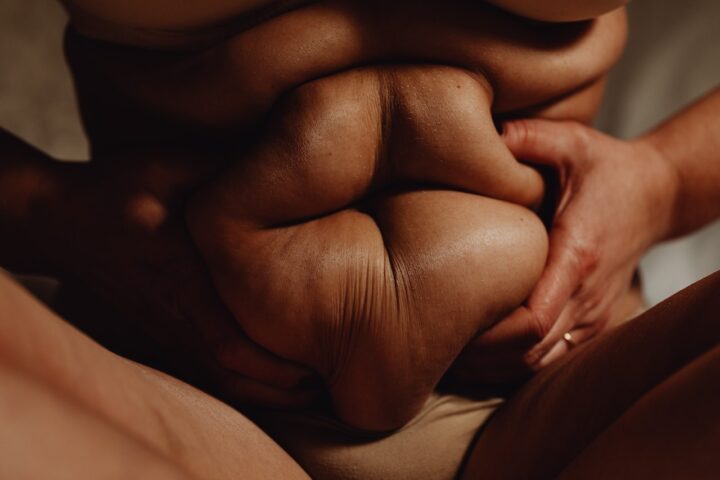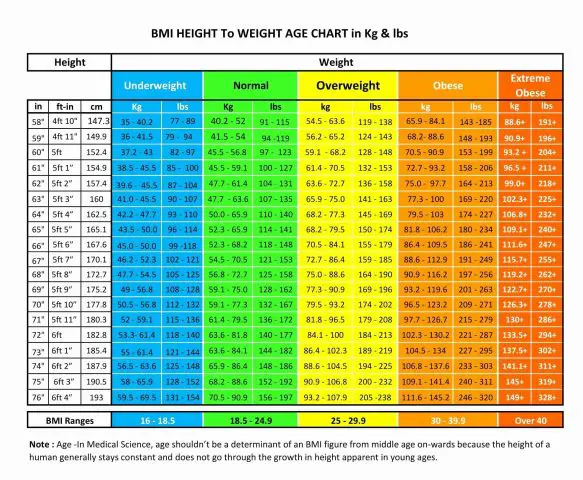We are reader-supported & may earn a small commission at no extra cost to you, when you buy through links on this site. This helps us to provide you with free and helpful content. The content of this site is informational only & is no substitute for medical advice, diagnosis or treatment. Always seek the advice of a doctor before using any of the information/products mentioned on this site.
Table of Contents
Muscle Vs Fat – Yin and Yang

When most people think about weight loss, they think of losing muscle mass. However, when you are trying to lose weight, you actually want to lose fat.
Fat and muscle are two completely different types of tissues in the body, and each has its own unique functions. In this article named Muscle vs Fat, we will discuss the differences between muscle and fat, and how you can go about losing fat while preserving your muscle mass.
>> UGLY Plant [Featured On Dr. Oz] Made This Mother Lose A Jaw-Dropping 59 Pounds. Click HERE To See Her Testimony <<
What Are Muscles?
Muscles are tissues that contract to produce movement.
There are three main types of muscles in the body: skeletal, cardiac, and smooth. Skeletal muscles are the type that we can control voluntarily, such as those in the arms and legs.
Cardiac muscle is found in the heart and is responsible for pumping blood throughout the body. Smooth muscle is found in the walls of blood vessels and organs, and helps to move substances through these channels.
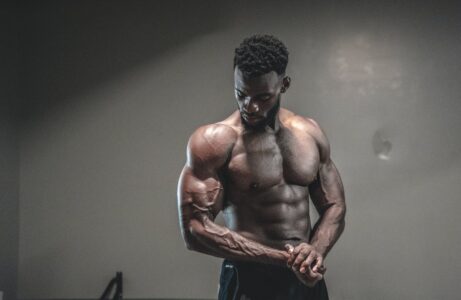
What Is Fat?
Fat is a type of tissue that stores energy in the form of triglycerides. Triglycerides are molecules composed of glycerol and three fatty acids. Fatty acids are long chains of carbon atoms with hydrogen atoms attached.
When you eat food, your body breaks down the triglycerides into glycerol and fatty acids, and then reassembles them into new triglycerides. These triglycerides are then stored in fat cells called adipocytes.
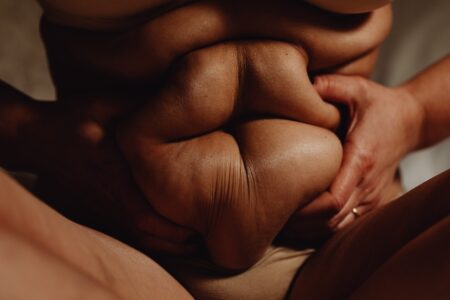
How Are Muscles and Fat Different?
The main difference between muscle vs fat is their composition. Muscle is made up of proteins, while fat is made up of triglycerides. Muscle tissue is also much more dense than fat tissue.
This means that, although muscle and fat may weigh the same, a given volume of muscle will take up less space than the same volume of fat.
Another difference between muscle vs fat is their function. As we mentioned before, muscles are responsible for producing movement. Fat, on the other hand, serves as a reserve energy source.
When you eat more calories than your body needs to meet its energy needs, those excess calories are stored in the form of triglycerides in adipocytes. Then, when your body needs more energy (such as during exercise), it can break down these triglycerides back into glycerol and fatty acids to be used for fuel.
Can You Transform Fat Into Muscles?
No, you cannot transform fat into muscle. Muscle and fat are two completely different types of tissues, and they serve different functions in the body. You can, however, lose fat and build muscle at the same time.
This is known as simultaneous weight loss and muscle gain. To do this, you will need to create a calorie deficit while following a high-protein diet and include resistance exercise in your plan.
How To Burn Fat And Preserve Muscles?
So, now that we know the difference between muscle vs fat, how can we go about losing fat while preserving our muscle mass?
The key is to create a calorie deficit, which means eating fewer calories than your body needs plus eating a high-protein based diet.
After all muscle are mostly protein and water. When combined, these two strategies will help you to achieve your weight loss goals while preserving your muscle mass.
When you do this, your body will need to draw on its energy stores (i.e. fat) to make up the difference. However, if you create too large of a calorie deficit, your body will start to break down muscle tissue for fuel instead of fat.
To avoid this, be sure to include resistance exercise and a ketogenic diet. This approach helps to preserve muscle mass while you are in a calorie deficit and the high-protein food sources from a ketogenic diet prevents your body from breaking down protein from muscle tissue by feeding it enough external protein for muscle maintenance and other important biological functions where protein is involved (basically all!).
Where Do You Burn Body Fat First?
There is no one answer to this question as everyone is different. However, some people tend to lose fat from their face and upper body first, while others may see results in their midsection or lower body first.
Ultimately, the order in which you lose fat is not as important as the fact that you are losing fat.
Remember, the best way to lose fat and preserve muscle is to create a calorie deficit and include resistance exercise in your plan.
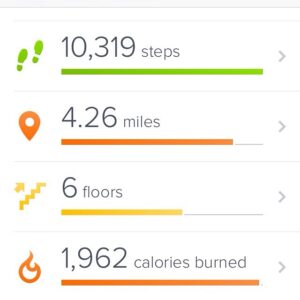
Where Do You Gain Muscles First?
Again, there is no one answer to this question as everyone is different. However, some people tend to build muscle in their upper body first, while others may see results in their lower body first.
Ultimately, the order in which you gain muscle is not as important as the fact that you are gaining muscle.
Can You Lose Fat And Build Muscle At The Same Time?
Yes, you can lose fat and build muscle at the same time. This is known as simultaneous weight loss and muscle gain. To do this, you will need to create a small calorie deficit and include resistance exercise & a diet high in protein, like “The Custom Keto Diet“, in your plan.
With consistency and dedication, you can achieve your weight loss goals while preserving and even increase your hard-earned muscle mass.
Muscle mass is metabolically active mass which means the more muscle mass you have, the more calories your body will burn, even at rest, even when you sleep, 24/7!
That is why it is of utmost importance for everyone who is serious about losing weight and staying fit to built or at least maintain his current muscle mass. The best way to achieve this is through a diet high in protein or a ketogenic diet.
The DRI (Dietary Reference Intake) is 0.36 grams of protein per pound (0.8 grams per kg) of body weight. However if you are active, working out and look to maintain and build muscle mass for optimal health, you should opt to double this amount.
Does Fat Weigh More Then Muscles?
No, muscle tissue is much more dense than fat tissue. This means that, although muscle and fat may weigh the same, a given volume of muscle will take up less space than the same volume of fat.
So, if you are trying to lose weight, focus on losing fat, not muscle.
Losing Weight vs Losing Fat
There is a big distinction between losing weight and losing fat, just as being for muscle vs fat. A lot of people think that as long as the number on the scale goes down, they are making progress.
However, this is not necessarily the case. When you lose weight, you can lose a combination of fat, muscle, and water. On the other hand, when you lose fat, you preserve your muscle mass and only lose the excess fat tissue.
So, if your goal is to lose fat and not muscle, it is important to create a calorie deficit while including resistance exercise in your plan. With consistency and dedication, you can achieve your goals and build the healthy, strong body you’ve always wanted.
As we mentioned before muscles are responsible for producing movement while fat serves as a reserve energy source . When you create a calorie deficit, your body will need to draw on its energy stores (i.e. fat) to make up the difference.
Zoo large of a calorie deficit, your body will start to break down muscle tissue for fuel instead of fat. To avoid this, be sure to include resistance exercise in your weight loss plan.

What Is My Optimal Body Fat Range?
There is a lot of debate on what is considered to be a healthy body fat percentage. However, most experts agree that the range for women is between 20-30% and the range for men is between 12-20%.
Of course, these are just general guidelines and your individual needs may vary depending on your health goals and body type. If you are trying to lose weight, it is important to focus on losing fat, not muscle.
Too Much Body Fat And Health Risks
Having too much body fat can lead to a number of health risks such as heart disease, stroke, type II diabetes, and high blood pressure.
If you are carrying excess fat, it is important to make changes to your lifestyle in order to improve your health and reduce your risk of developing these chronic diseases.
Also researchers[1] have found that people with a high body-fat percentage have a higher overall death rate.
Can You Have Too Much Muscle Mass?
Although it is possible to have too much muscle mass, it is much more difficult to achieve than having too much body fat. Most people who exercise regularly and eat a balanced diet will not have to worry about gaining too much muscle.
However, if you are concerned about gaining too much muscle, you can talk to your doctor or a registered dietitian.
Muscle Vs Fat – The Bottom Line
We hope this article cleared all your questions you had regarding muscle vs fat! Both are essential for our survival yet we need to bring both in a healthy balance, which can be hard given modern nutrition and the obesity epidemic.
With consistency and dedication, you can achieve your weight loss goals while preserving your hard-earned muscle mass.
Thanks for reading! We hope this article Muscle vs Fat was helpful in explaining the difference between muscle and fat. If you have any questions or comments, please feel free to leave them below.
Continue to read: Peloton For Weight Loss – A Comprehensive Guide!
[1] Relationship Among Body Fat Percentage, Body Mass Index, and All-Cause Mortality Raj Padwal, MD, MSc, William D. Leslie, MD, MSc,Lisa M. Lix, PhD, and Sumit R. Majumdar, MD, MPH.

Dear Reader, have you enjoyed reading this article? Since 2020, we dedicate ourselves to help people all over the world to achieve their weight loss goals. Over the course of these years many of our readers have contacted us to tells us about their weight loss progress. This is what keeps us going. If you found this article useful, please consider sharing it.
Thank you – Your WLJ-Team
Greetings,
Your WLJ-Team

